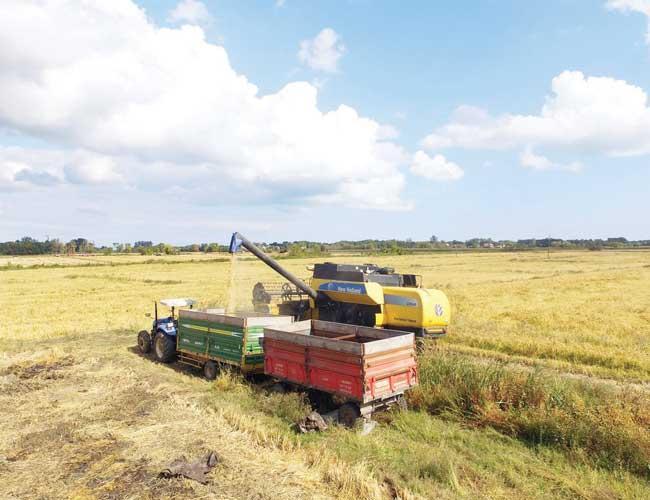
Turkey experienced the worst drought in 44 years in 2017, due to a substantial decrease in rain levels, Water Affairs and Forestry Minister Prof. Dr. Veysel Eroğlu said on Dec. 28, while sharing his ministry’s annual report at the Istanbul Lütfi Kırdar International Convention and Exhibition Center.
“Turkey is located in a semi-arid region. Turkey is not rich in water levels. And rain levels have substantially decreased,” Eroğlu said, adding that it was thanks to the country’s dams that authorities were able to provide water in 2017, which was “the driest year in the last 44 years.”
“In summer months, when water levels are most severely needed, there is no rain. This is why we need to collect water in the winter and spring months. The water is used in the summer months because there is irrigation in the winter months. And in summer months, people use more water. This is why we need to build damns, so we can collect the [rain] water,” he said.
The Forestry Ministry had undertaken investments worth 158 billion Turkish Liras (around $42 billion) in the last 15 years, corresponding to the construction of 7,200 new facilities, including 513 hydroelectric power plants, according to Eroğlu.
In 2017 alone, 111 dams, 38 artificial ponds, 184 irrigation facilities, 28 drinking water facilities, 147 facilities to prevent flooding, 14 groups of afforestation areas and two meteorology facilities were constructed, he said.
The ministry also touched upon water supply in the Istanbul province. Thanks to the Melen dam, Istanbul’s water demand will be met until 2071, Eroğlu said.
“Even if there was a drought for the next two years, there will not be a water shortage in Istanbul,” he said.
Eroğlu had previously announced that the capacity of the Melen dam in the northwestern province of Sakarya’s Kocaali district, very close to Istanbul, was 1.77 billion cubic meters per year.
He had also announced Istanbul’s annual water usage as around one billion cubic meters per year during a field analysis of the Melen damn project construction back in August.